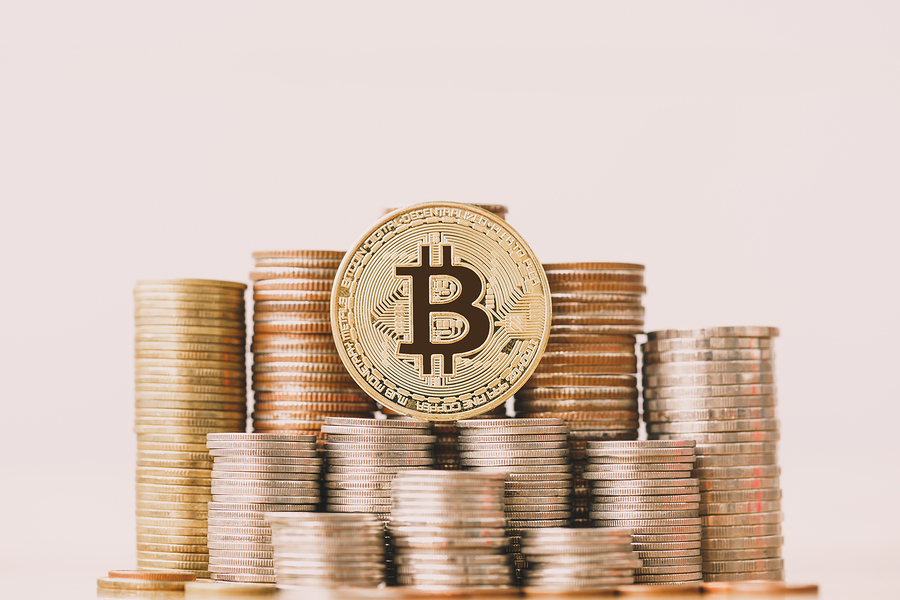If you are someone who is not into the tech-world and the ever-changing environment it operates in, it’s likely that you are not quite familiar with the term ‘cryptocurrency’ even though you might have heard a lot about Bitcoin.
You might have heard or come across articles that claim how Bitcoin has, essentially, made some people go from being a member of the middle class to becoming insanely wealthy and that too overnight — almost to the point where it sounds fake when reading about it in newspapers, magazines, or headlines.
Well, all that and more, is true. Welcome to the world of cryptocurrency. However, don’t mistake cryptocurrency to be some sort of magical money-spitting tool that is just waiting for you to exploit it. That mentality is the reason why a lot of people have lost a lot of money when dealing with cryptocurrency.
That’s why, in this article, we’re gonna be taking about the basics of cryptocurrency and Bitcoin and try to understand how the whole system works and where is the money actually coming from and whether or not we, as normal general public, can make any use out of it.
What is Cryptocurrency?
Let’s start simple. Cryptocurrency, like Bitcoin, is basically a digital form of currency that has no physical existence and is built based on mathematical code. However, it is not like the digital currency you carry in your online banking apps. The simple reason being that cryptocurrency is independent and is not affiliated with any bank or intermediary which in-turn means that there is no official government or regulatory body that controls it.
Therefore, it is decentralised in nature. Bitcoin is the first cryptocurrency and just like all cryptocurrencies, it works differently than banks or other traditional financial bodies. See, traditionally, any financial institution would require you to create your account under them using your personal ID proof such as your driving license or voter ID to confirm your identity.
Cryptocurrency, like Bitcoin, is different. It relies on a set of public and private keys that is used to make transactions between two different accounts. Think of it like this: your public key is like your bank account number or your email address; you give it to the person with whom you want to transact with and are supposed to receive Bitcoin (or any other cryptocurrency) from.
Your private key, on the other hand, is like your password, allowing you to deposit or withdraw the money in and from your account and send it to other accounts. It must be protected and guarded very carefully.
But how is Bitcoin created? Who found it? Where do I get it? Can I invest in it?
Okay, this is the part where things are about to start sounding really sci-fi so pay close attention. First, let’s answer the least hard question.

Who Found Bitcoin?
Bitcoin is said to be created by the presumed pseudonymous person or group of people using the name Satoshi Nakamoto. There is no actual record that a person with that name actually existed, though.
All we know is that it is the name found on the original Bitcoin whitepaper. Anyway, who created Bitcoin isn’t really our biggest concern. Let’s talk about how Bitcoin is created and where does it come from. Bitcoin is “won” by a process known as mining.
Bitcoin Mining
It’s like the digital equivalent of digging for gold and is done by solving complex crypto puzzles that get increasingly harder and requires more computing power the more times it is won.
Each miner who solves the crypto puzzle is rewarded with a “block reward” which contains Bitcoins – kinda like a box containing multiple candy bars. This is how Bitcoins are mined. The number of Bitcoins rewarded in a block reward reduces overtime.
When Bitcoin was first introduced, the block reward was 50 Bitcoins. The current Bitcoin block reward, as of 2020, is 6.25 Bitcoins. That is because after every 210,000 blocks are mined, the block reward halves.
All of this sounds somewhat like a video-game mechanism, doesn’t it? We think so too. Now, before you start thinking about mining Bitcoins yourself and becoming super-rich in no time, keep in mind that there is only a fixed supply of it in the world. 21 million, to be precise. Out of which, around 88% of it has already been mined so far.
So yeah, there is not a lot of Bitcoin left to be mined now which naturally means that the supply is about to deplete in the next few years and the situation of the crypto market will certainly become really exciting to see when that happens. Speaking of market, let’s see how to invest in Bitcoin.
Investing in Bitcoin, potential risks, and the FATF
If this is the first time you are learning about cryptocurrency and what it is or you’re still unsure if you understand it, we recommend you to hold your urge to invest in it. Like the wise crypto-investor once said, the first thing you should be investing when talking about cryptocurrencies is your time, not your money.
Instead, what you should be doing is spending time learning about it, watching educational videos on relevant topics, reading articles, and asking people about it who are familiar with the concepts.
A lot of people are either too quick to get into crypto or disregard it completely and call it “dirty money” simply because they don’t understand how it works. Just like any other form of currency, cryptocurrency is just a tool. How you use it determines the outcome – either good or bad.
That said, it is indeed true that Bitcoin, due to its nature of anonymity of the user, has been a part of multiple controversies including money laundering, fraud, and purchase of illegal substances – just like other cryptocurrencies.
Fortunately for us, inter-governmental bodies like the FATF (The Financial Action Task Force) help protect society by setting international standards that aim to prevent these illegal activities. One of the ways they do it is by categorizing countries into Blacklists and Greylists.
For instance, the FATF Grey Countries List (officially referred to as ‘Jurisdictions under Increased Monitoring’) contains names of countries that are under a much higher risk of money laundering and terrorism financing.
However, what stops them from being a part of the Blacklist is that these companies have formally committed to working with the FATF to develop action plans to redeem their systemic deficiencies.
All of this sounds intense, we know. But don’t let it scare you. Like we said, done enough research and with proper precautions, cryptocurrency can be a lucrative market. If you think you are ready, however, here are the steps:
- First of all, open a brokerage account at a firm that supports cryptocurrency investments.
- Next, deposit funds from your bank account into the brokerage account.
- Once you’ve done that, you can start buying stocks of Bitcoin using deposited funds or cash balance.
- Finally, you can later sell the stock for a profit or loss depending on the transaction. The funds are returned automatically to your cash balance.
As an additional bit of help, here are the top 10 cryptocurrencies in 2020 according to ‘yahoo! Finance’ to get you started on your crypto journey:
- Bitcoin (BTC) $128bn
- Ethereum (ETH) $19.4bn
- XRP (XRP) $8.22bn
- Tether (USDT) $6.4bn
- Bitcoin Cash (BCH) $4.1bn
- Bitcoin SV (BSV) $3.4bn
- Litecoin (LTC) $2.6bn
- EOS (EOS) $2.4bn
- Binance Coin (BNB) $2.4bn
- Tezos (XTZ) $1.5bn
We hope you found this article useful and have gained enough insight about Bitcoin and the world of cryptocurrency. There is a lot out there yet to discover and learn. Happy investing!
Image Source: BigStockPhoto.com (Licensed)
Disclaimer
Cryptocurrency products are unregulated and can be highly risky. There may be no regulatory recourse for any loss from such transactions.
The information on this website is provided for educational, informational, and entertainment purposes only, without any express or implied warranty of any kind, including warranties of accuracy, completeness, or fitness for any particular purpose.
The information contained in or provided from or through this website and related social media posts is not intended to be and does not constitute financial advice, investment advice, trading advice, or any other advice.
The information on this website and provided from or through this website is general in nature and is not specific to you the user or anyone else. You should not make any decision, financial, investment, trading, or otherwise, based on any of the information presented on this website without undertaking independent due diligence and consultation with a professional broker or financial advisory.
You understand that you are using any and all Information available on or through this website at your own risk.
The trading of Bitcoins, alternative cryptocurrencies has potential rewards, and it also has potential risks involved. Trading may not be suitable for all people. Anyone wishing to invest should seek his or her own independent financial or professional advice.
Site Disclaimer
The Content in this post and on this site is for informational and entertainment purposes only. You should not construe any such information or other material as legal, tax, investment, financial, or other advice. Nothing contained on our Site constitutes a solicitation, recommendation, endorsement, or offer by HII or any third party service provider to buy or sell any securities or other financial instruments.
Nothing in this post or on this site constitutes professional and/or financial advice. You alone assume the sole responsibility of evaluating the merits and risks associated with the use of any information or other content in this post or on this site.
You recognize that when making investments, an investor may get back less than the amount invested. Information on past performance, where given, is not necessarily a guide to future performance.
Related Categories: Cryptocurrency, Reviews







